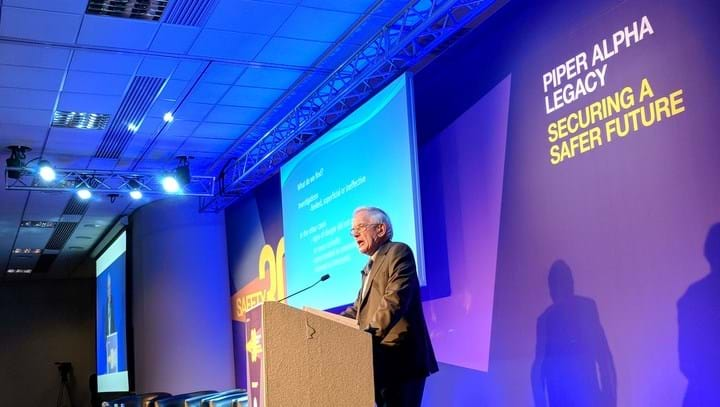IChemE succeeds in lobbying HSE to make Piper Alpha report free

ICHEME has successfully lobbied the Health & Safety Executive (HSE) to waive the £70 (US$91) cost for the landmark Cullen report into the Piper Alpha disaster, which is now being made free to download.
Shahana Buchanan, chair of the IChemE Safety & Loss Prevention Special Interest Group, and Trish Kerin, director of the IChemE Safety Centre, sent a letter to the HSE in early July on the eve of the 30th anniversary of Piper Alpha calling for the report to be made free to access.
They wrote “the Institution of Chemical Engineers believes it is vital to reflect on this event and what we can learn to prevent future catastrophes of this nature… The inability to download the document free of charge may prevent some people accessing it, especially university students. We believe these lessons should be free to all industries.”
The HSE has now confirmed that because the report falls under Crown Copyright there is no problem with making it freely available online.
“The report dates from 1991 and isn’t readily available in an electronic format,” the HSE explained in a letter dated 31 July. “As such we have commissioned a good quality scan of both volumes of an original copy and will make it available via our website as soon as possible.”
On 6 July 1988, 167 men died offshore in the Piper Alpha tragedy. Lord Cullen was appointed to investigate the disaster. His enquiry ran for 180 days and resulted in a report that examined the causes of the incident, the lessons learned, and issued 106 recommendations for change, all of which were accepted. The result was the adoption of a goal-setting safety regime that changed the face of offshore safety.
Responding to the HSE’s decision, Kerin said: The IChemE Safety Centre welcomes the move by the HSE to provide this report free for people from all industries to learn from. We believe it is vital to learn from previous incidents such as the Piper Alpha tragedy. To do this we need to accurately communicate the facts and learnings of the event. Everyone who works with a permit-to-work system should read this report and use it as a check against their system.”
Buchanan, who is process safety program manager at Nestlé, said: “It is poignant timing, as that generation of offshore workers, engineers and management at the time of the incident, are now probably retiring, and we cannot allow that knowledge and experience of lessons learned to retire with them.”
Buchanan noted that many of the disaster’s contributory factors identified by Lord Cullen, including failures in design, management systems and human factors, still exist across industry today.
“Providing this report for free will help prepare our young engineering students for the challenges they will face once they graduate, and help improve awareness to the existing workforce around the world who are involved in high hazard processes. On behalf of the IChemE’s Safety & Loss Prevention Special Interest Group, we thank the Health and Safety Executive for enabling us all, and future generations to access the public inquiry into the Piper Alpha disaster.”
The Chemical Engineer will issue an update once the HSE confirms the report is available to download.
To learn more about the incident, read our Piper Alpha Perspectives series, which includes insights on the disaster from experts across industry.
Recent Editions
Catch up on the latest news, views and jobs from The Chemical Engineer. Below are the four latest issues. View a wider selection of the archive from within the Magazine section of this site.




